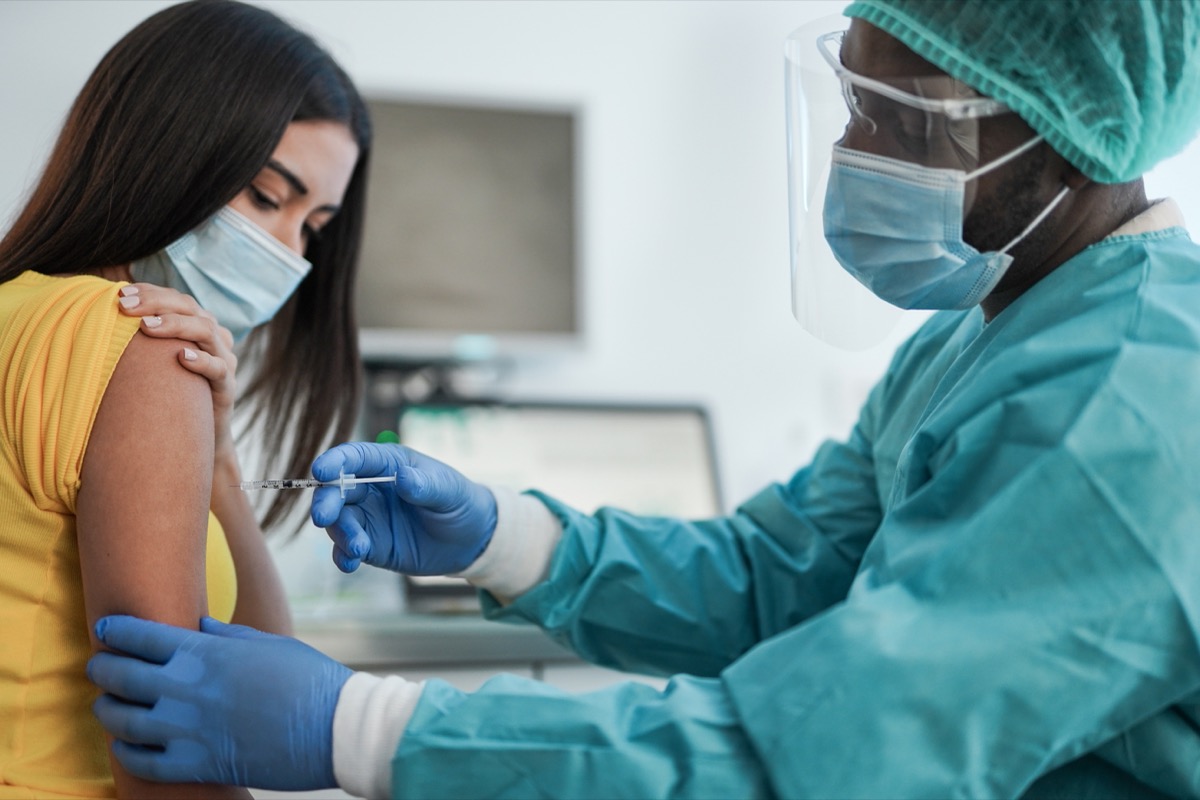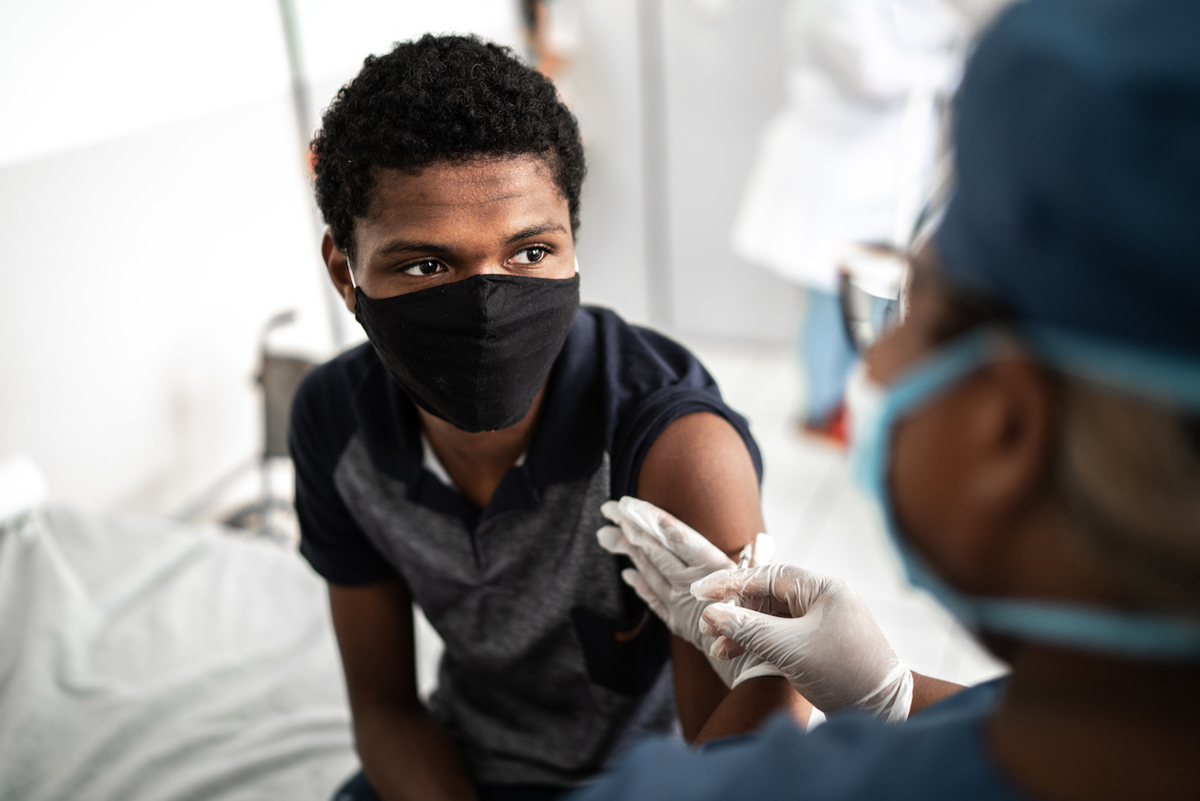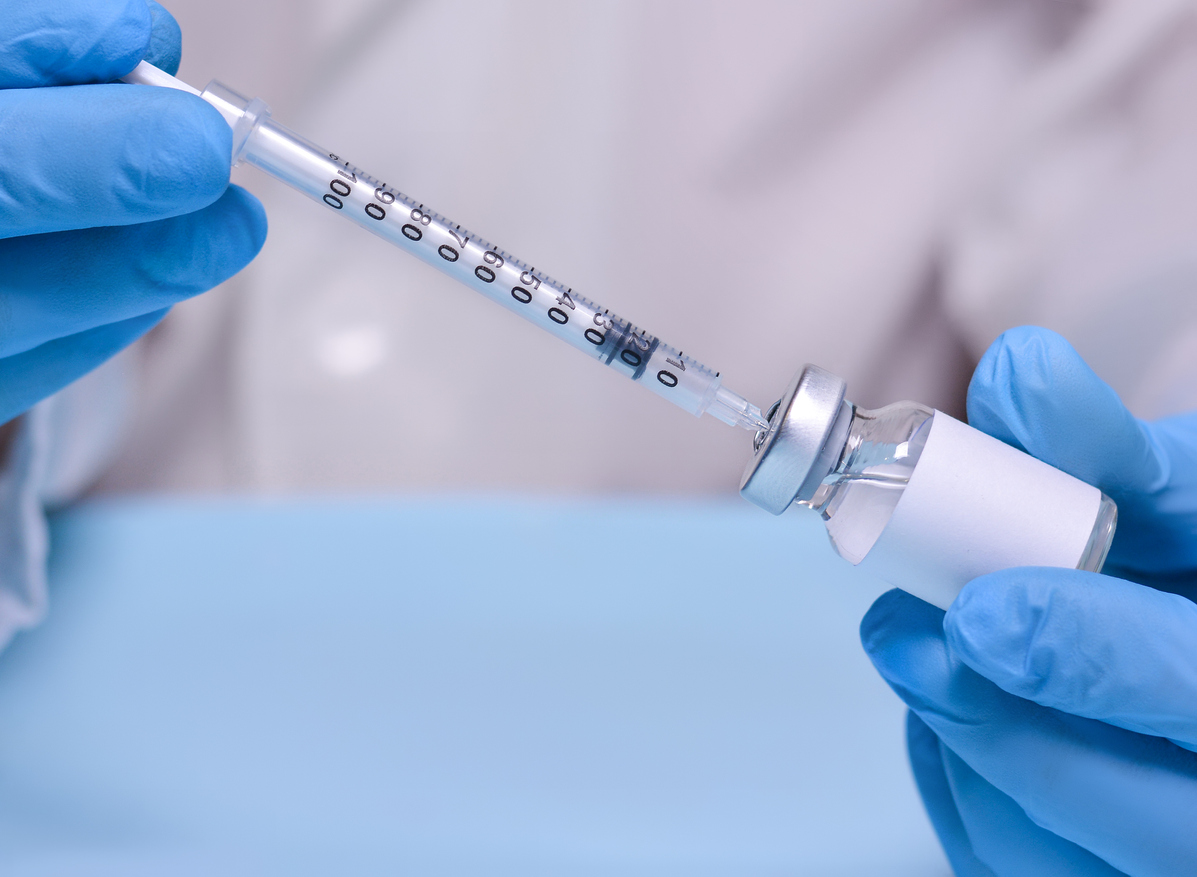During his interview with Axios, Bourla said he’d advise his family members to get any vaccine that was offered to them. “This is a pandemic. The vaccines that are approved by the FDA are all vaccines that are meeting the threshold,” he said. “If it was the case, can I get a vaccine now—any vaccine now—or a vaccine that I prefer two months later, I would go with whatever I can get now.” And to make sure you’re prepared for your shot, Doctors Say Do These 2 Things the Morning of Your Vaccine Appointment. During a Twitter Q&A on Feb. 4, White House COVID adviser Anthony Fauci, MD, was asked, “Of all the vaccines available, which one would you recommend based on trial results; effectiveness; length of immunity & number of doses required?” “I urge everyone to receive the vaccine that is made available to you,” Fauci replied. He noted that the three vaccines—Pfizer’s, Moderna’s, and Johnson & Johnson’s—“are all highly effective in preventing severe disease.” Before Fauci received his shot, he said he was open to any vaccine that was available to him, even though he and the National Institute of Health (NIH) played a significant role in the creation of the Moderna vaccine. On Dec. 16, the infectious disease expert told CNBC’s Healthy Returns that he planned to get whichever vaccine was the first to arrive at the NIH offices. Fauci ultimately got the Moderna shot a few days later. And for vaccine reactions to be aware of, The CDC Just Warned of 3 New Vaccine Side Effects. You may do ample research before your appointment and decide you want a specific vaccine, but the odds are you won’t have a choice—and waiting for the one you want would be unwise, as The New York Times explains. However, Bourla predicts that in the future, when vaccine supplies are no longer limited, people will likely be able to choose the vaccine they get. After the summer, “for boosters or for other situations, there will be enough vaccine so that you can go to free choice,” he told Axios. And for more on what happens after your shot, This Is What It Means If You Have No Vaccine Side Effects, Doctors Say. In the future, booster shots of the coronavirus vaccine may be necessary to mitigate the risk of COVID variants. At the moment, it’s unclear who will foot the bill for these doses. Bourla told Axios that it “will be terrible for society” if the price of COVID vaccines ends up prohibiting people from getting them in the future.ae0fcc31ae342fd3a1346ebb1f342fcb Currently, Pfizer is using a tiered pricing system for the vaccines that has higher-income companies paying more, according to Axios. The U.S. government purchases the vaccine directly from Pfizer for $19.50 per dose, then Americans receive the shot for free. Bourla pointed out that this a pandemic price, and it likely won’t last. “We will see if we go to the open market, maybe [then] we see vaccine prices much more closer to the current vaccines that exist for flu or for other diseases with these high-end technologies,” he added. And for more up-to-date information, sign up for our daily newsletter.



